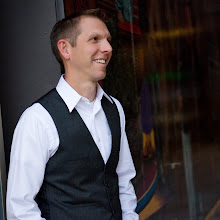The culture of a church committed to making disciples will be distinctive from a culture committed to building a church. These four "downstream effects" continue our New Testament survey of disciple-making cultures.
- The number of disciples increases. Throughout the book of Acts, Luke recounts seasons of increase in the number of disciples who were obedient to the faith (Acts 6:7, Acts 14:21-22).
If your goal is a crowd and you succeed then you will have a crowd and not necessarily anything else. If your goal is to make disciples then any increase will be with people whose desire is to obey Christ and not simply join a crowd. - Prayer looks more like the prayers of the New Testament. Our Father knows how to give good gifts so we have freedom to ask God for many things (Luke 11:5-13, Hebrews 4:16, James 5:13) but some prayers stand on promises.
The new covenant gives us a better hope than any promise for better circumstances. It is a better hope by which we draw near to God (Hebrews 7:18-19). So prayers for individuals to see God’s glory (John 17:24 and 2 Cor. 4:4-6), love (Ephesians 3:14-20) and our hope (Ephesians 1:15-18 and Col. 1:9-11) are in accordance with the promises of the Gospel.
In a culture of church-building, prayers are often focused on nickels, numbers or the next big event. In a culture of disciple-making, prayer is continual (1 Thes 5:16-18), individual and Gospel-centered. - Leaders are full of grace and power. Because they are disciples before they are leaders, the leaders have shown that their leadership is motivated by a love for Christ above a desire for recognition (Acts 6:3, 1 Timothy 3:1-13 and Titus 1:5-9).
Leaders are not dictatorial when the hearts of individuals are valued above numbers and quality programing. Yet, in their gracious concern for individuals, the leaders are not ineffective at leading. Their example powerfully inspires the church to wholehearted devotion to Christ.So I exhort the elders among you, as a fellow elder and a witness of the sufferings of Christ, as well as a partaker in the glory that is going to be revealed: shepherd the flock of God that is among you, exercising oversight,not under compulsion, but willingly, as God would have you;not for shameful gain, but eagerly; not domineering over those in your charge, but being examples to the flock. (1 Peter 5.1–3)
- People are sanctified. The goal of a disciple is to be like their teacher (Luke 6:40 and Romans 8:29). In a community where the word of God increases and the Gospel is cherished, people have all they need to change (John 17:17 and 2 Peter 1:3-4). Tim Keller provides a great description of this God-enabled, Gospel-empowered change:
“Sanctification is not by ‘works’ but by a continuous re-orienting ourselves to our justification. So sanctification is not moralistic. Yet it takes enormous effort (so it is not quietistic.) When we feed on, remember, and live in accordance with our justification, it mortifies our idols and fills us with an inner joy and desire to please and resemble our Lord through obedience. But the feeding on, remembering, and living in accordance—takes all our effort.”
In a disciple-making church, relationships are essential to reveal sin and idolatry. They also support repentance and the "enormous effort" of re-orienting ourselves to our justification.
Additional Resources
Preacher Onlys are Not Good Preachers - Tim Keller
The Centrality of the Gospel - How the Gospel shapes the Christian life by Tim Keller (from Galatians 2)
What an Ornament to the Church! - a quote from "The Reformed Pastor" by Richard Baxter
Biblical Eldership - a fantastic book on the call and qualification of elders in the church by Alexander Strauch
The Prayers of New Testament Authors - a collection in a MS Word document









0 comments:
Post a Comment